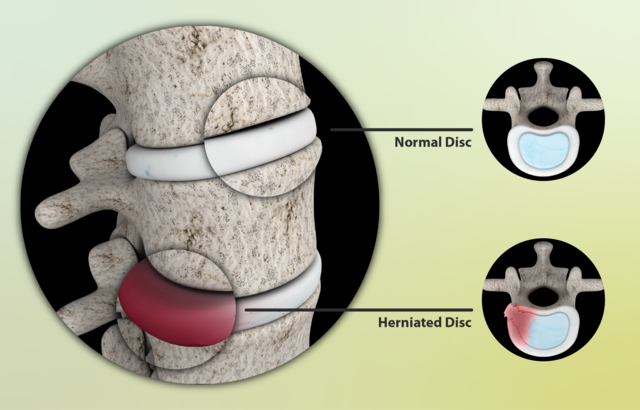Back pain can be a debilitating and distressing condition.
According to the Centers for Disease Control and Prevention, in 2019, 39% of adults were estimated to suffer from some form of back pain.
While there are many potential causes of back pain, one common issue is a pinched nerve in the back. Pinched nerves can lead to various symptoms, from mild discomfort to severe pain and disability.
Read on as we explore the signs and symptoms of a pinched nerve, possible reasons why you may have pinched a nerve, treatment options, and when it might be necessary to consult a personal injury attorney in Pennsylvania.
Signs and Symptoms of a Pinched Nerve
Signs and symptoms of a pinched nerve include:
- Pain and Discomfort: The most common and obvious sign of a pinched nerve in the back is pain. This pain may range from a dull ache to a sharp, shooting pain. Depending on which nerve is affected, it can be localized in one area or radiate down the arm or leg.
- Numbness and Tingling: Another common symptom is numbness and tingling, often described as pins and needles. These sensations can occur in the affected area or travel along the path of the pinched nerve.
- Muscle Weakness: Pinched nerves can also lead to muscle weakness in the affected area. You might find it challenging to grip objects, walk, or perform tasks that were once effortless.
- Radiating Pain: Depending on the location of the pinched nerve, you may experience radiating pain that extends to your arms, legs, or other parts of your body. Sometimes, this radiating pain is mistaken for other health issues.
- Decreased Range of Motion: Individuals with pinched nerves may also notice a reduced range of motion. Bending, twisting, or turning can be painful and limited.

Render of a 3D depiction of a herniated disc. Photo from https://www.myupchar.com/en, CC BY-SA 4.0, via Wikimedia Commons
Possible Reasons for a Pinched Nerve
Several factors can contribute to developing a pinched nerve in the back. Understanding these causes can help you avoid or address the underlying issue.
They include:
- Herniated Disc: One of the leading causes of pinched nerves in the back is a herniated disc. When the soft center of a spinal disc ruptures and presses on nearby nerves, it can result in pain and other symptoms.
- Bone Spurs: Over time, your spine can develop bone spurs, which are abnormal bony growths. These spurs can press on adjacent nerves, causing pain and discomfort.
- Spinal Stenosis: Spinal stenosis is the narrowing of the spinal canal, which can put pressure on the spinal cord and nerves. This condition is more common in older individuals.
- Poor Posture: Sitting or standing in poor posture for extended periods can lead to pinched nerves in the back. Maintaining good posture is crucial to reducing the risk of nerve compression.
- Injuries and Trauma: Accidents, such as car crashes or falls, can result in traumatic injuries that lead to pinched nerves. Whiplash and fractures are examples of injuries that may result in nerve compression.
- Overuse and Repetitive Strain: Overusing certain muscle groups or repetitive movements can cause inflammation and compression of nerves. This is common in activities or jobs that involve repetitive motions.
Treatment Options for Pinched Nerves
Treating a pinched nerve typically involves conservative methods to alleviate pain and restore function. In some cases, surgical intervention may be necessary.
Here are some common treatments for pinched nerves:
- Rest and Activity Modification: Taking a break from activities that exacerbate the pain and making ergonomic adjustments can help reduce the pressure on the nerve.
- Physical Therapy: Physical therapy can be beneficial in strengthening muscles, improving flexibility, and relieving pressure on the nerve. Often when working with a personal injury attorney, you can get compensation for physical therapy.
- Medications: Over-the-counter or prescription medications, such as non-steroidal anti-inflammatory drugs (NSAIDs) and muscle relaxants, can help manage pain and inflammation.
- Steroid Injections: In some cases, corticosteroid injections may be administered to reduce inflammation and provide relief.
- Chiropractic Care: Chiropractic adjustments can help align the spine, reducing pressure on the affected nerve.
- Surgery: In severe cases where conservative treatments fail, surgery may be necessary to relieve the pressure on the pinched nerve. This could involve removing a herniated disc, bone spurs, or other structures compressing the nerve.

Photo by National Cancer Institute on Unsplash
How a Personal Injury Attorney Can Help
If you believe your pinched nerve in the back resulted from another person’s negligence or wrongdoing, it may be necessary to consult a personal injury attorney near you.
Here are some scenarios in which their expertise could be beneficial:
- Car Accidents: If your pinched nerve was caused by a car accident, a personal injury attorney can help you pursue compensation from the at-fault driver’s insurance company.
- Work-Related Injuries: An attorney can assist with workers’ compensation claims or personal injury lawsuits against a third party in cases of pinched nerves due to workplace accidents or repetitive strain.
- Slip and Fall Accidents: If you slipped and fell due to someone else’s negligence, leading to a pinched nerve from a fall, an attorney can help you seek compensation for your medical expenses and other damages.
- Medical Malpractice: In rare cases, medical professionals may misdiagnose or mistreat conditions that result in pinched nerves. A personal injury attorney can help you pursue a medical malpractice claim.
The Thistle Law firm has experience handling claims involving back injuries. If you or a loved one believe you have suffered harm due to someone else’s negligence, contact us by calling 215-525-6824 or filling out our form here.

